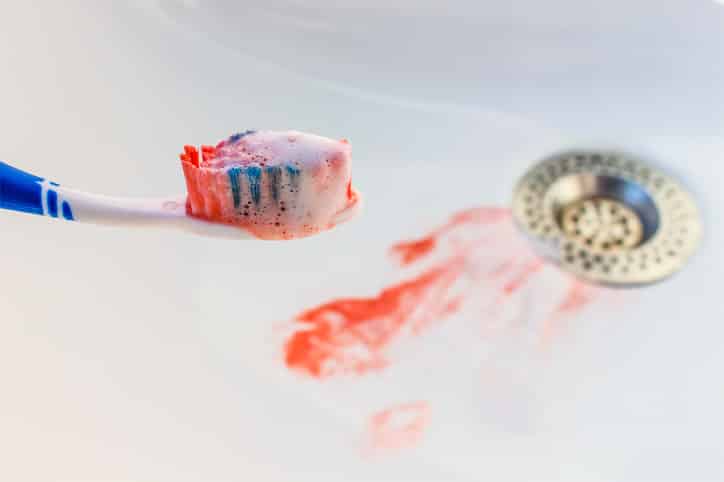We understand how alarming it must be to see blood in your sink after brushing your teeth, but there is no need to panic!
Gums might be just a tiny part of our body, but they actually have a big job. For starters, they protect the roots and neck of our teeth from bacteria. Without healthy gums to guard our teeth, bacteria can easily sneak beneath your teeth, causing damage to tissues over time. The tissues will then become too damaged to hold your teeth, leading to loose teeth that may eventually fall out.
THE CAUSES OF BLEEDING GUMS
GINGIVITIS (Gum Disease)
If you do not brush or floss regularly, bacteria build up in the groove surrounding your teeth. As bacteria move and grow, they irritate the gums, causing gingivitis. This is the early stage of gum disease and its most common symptom: bleeding gums.
Fortunately, this stage of gum is reversible. One of our dentists or dental hygienists can help scrape away bacteria and plaque. Flossing and brushing regularly keeps the bacteria at bay so you can enjoy healthy gums again.
If gingivitis gets worse, your gums will start pulling away from your teeth, leaving space for bacteria to go into the tissues below your teeth. Keep in mind that the longer bacteria live in your tissues, the worse your dental health also gets.
PREGNANCY
When a woman is pregnant, there are hormonal changes that affect her entire body, including the gums, leading to a condition called pregnancy gingivitis. To avoid any oral issues while you are pregnant, it is best to have one of our dentists take care of your dental health with you.
MEDICATIONS
The medications that you take can also cause your gums to bleed – even if you have healthy brushing and flossing habits. Aspirin and blood thinners keep the blood from clotting. These medications increase the risk of bleeding gums and might cause the gums to bleed for a long time after brushing.
Make sure to tell your dentist if you are taking any of those medications.
NEW ORAL HEALTH ROUTINE
If you have just started to have an oral health routine, then your gums might bleed until your mouth gets used eventually to those new habits. Flossing and brushing regularly clear away plaque and bacteria from your gums. Gradually your gums should bleed less until it stops altogether eventually.
WHEN TO SEE A DENTIST
If your gums bleed regularly, even if you practice good habits, then it is a must to make an appointment with one of our dentists soon. The sooner you see your dentist about signs of gum disease, then the condition will also more likely be reversed.





